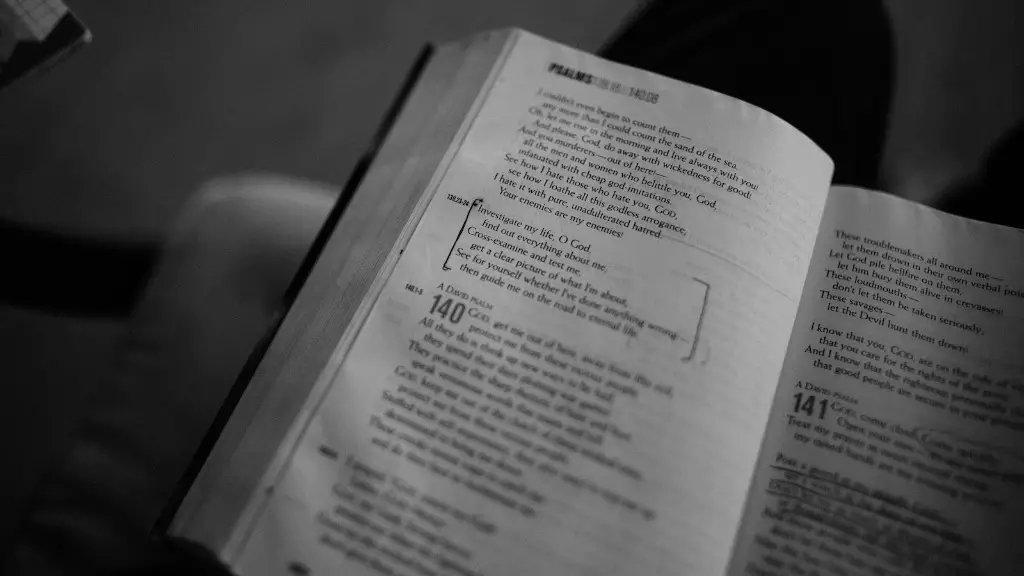The Bible is very clear about the creation of the world. God created the world and everything in it in six days. On the seventh day, God rested. This is clearly stated in the book of Genesis.
“In the beginning, God created the heavens and the earth.” (Genesis 1:1)
What does the Bible say about the creation of the world?
In the beginning, God created the heavens and the earth. The earth was formless and empty, and darkness was over the surface of the deep. The Spirit of God was hovering over the waters. And God said, “Let there be light,” and there was light.
On the first day, God created light in the darkness. On the second, He created the sky. Dry land and plants were created on the third day. On the fourth day, God created the sun, the moon, and the stars. Water and sky animals were made on the fifth day, and on the sixth day, land animals and people were created.
What Scripture talks about human creation
This verse from Genesis is often used to support the idea that men and women are equal in the eyes of God. While there are some who interpret this verse to mean that men and women are completely equal, others believe that it indicates that men and women are equal in value, but have different roles and responsibilities. Regardless of how this verse is interpreted, it is clear that both men and women are important to God and are to be treated with respect.
In the beginning, God started creation. The first day, light was created. The second day, the sky was created. The third day, dry land, seas, plants, and trees were created. The fourth day, the Sun, Moon, and stars were created. The fifth day, creatures that live in the sea and creatures that fly were created.
Why did God even create the world?
God is love, and because of this, He created the world and everything in it. He did not need to do this, as He has no lack, but He did it out of His overflow of love. And as the capstone of this good work, He created people in His image, so that we could share in His love, grace, and goodness through our relationships with the Trinity.
The creation story from the biblical Book of Genesis is a story that describes how God created heaven and earth, plants, animals, and people. The story goes on to describe how the first people were cast out of the Garden of Eden as punishment for eating from the ‘tree of knowledge of good and evil’.
What does Genesis teach us about creation?
The book of Genesis starts off with God creating the world and everything in it. He then creates human beings, with the deliberate intention of sharing the ordering of creation with them. Throughout the book, we see God emphasising the peaceful origins of the world and its innate goodness. This is a powerful message that we can all learn from today. It shows us that no matter how chaotic the world may seem at times, we should always remember that it is fundamentally good. And we should strive to live in harmony with each other and with nature, as God intended.
In Christ, we live in a new era where sin and death no longer have dominion. We are a new community of people who are unified through Christ and His work on the cross. We are freed from the bondage of sin and can now live in the freedom of the Spirit. We are being transformed into the image of Christ and are living as new creations.
What does the Bible say about the origin of life
The Bible is clear that humans are unique among all of God’s creation. We are the only creatures made in God’s image (Genesis 1:26-27). This means that we have the ability to think, feel, and choose like God. We are also the only creatures who can have a relationship with God. This is why we are responsible for our own actions and accountable to God. Other animals are not capable of these things.
The book of Genesis paints a picture of human beings as having a close relationship with God and being entrusted with a great responsibility – to rule over creation. This gives us a sense of our worth and value in God’s eyes, and also of the importance of our role in taking care of His creation.
When did life start according to the Bible?
There are two dominant dates for creation using such models – about 5500 BC and about 4000 BC. These were calculated from the genealogies in two versions of the Bible, with most of the difference arising from two versions of Genesis.
The 5500 BC date is more commonly accepted, as it is supported by a greater amount of evidence. This date is also in line with other scientific evidence, such as the dating of fossils. The 4000 BC date is less commonly accepted, as it is not as well supported by evidence.
The six-day creation story is found in the book of Genesis, while the Adam and Eve story is found in the book of Genesis and the book of Exodus. In the six-day creation story, the order of creation is plants, birds and fish, mammals and reptiles, and finally man to reign over all created before him. In the Adam and Eve story, the creation order is reversed, with man coming first, then plants and animals.
Where in the Bible does it say God created the earth in 7 days
The Bible Gateway website provides access to numerous translations of the Bible, including the New International Version (NIV). The NIV translation of Genesis 2 describes the creation of the heaven and Earth and the seventh day when God rested from his work.
There are later descriptions of creatures in the Bible that could be referring to dinosaurs. One example is the behemoth of Job 40:15-19. Even in fairly modern history there are reports of creatures which seem to fit the description of dinosaurs.
What is the purpose of man on earth according to the Bible?
The Bible tells us that we were createdto cultivate the garden, to be fruitful and multiply, and to rule over the earth and all that is in it. We were given this charge by God Himself, and it is a privilege and a responsibility that we should take very seriously.
Cultivating the garden means taking care of the earth and all its creatures, and being good stewards of all that God has given us. It also means being deliberate and intentional about creating and maintaining a healthy and thriving environment, both for ourselves and for future generations.
Being fruitful and multiplying refers not only to physical reproduction, but also to spiritual reproduction. We are called to evangelize and make disciples of all nations, sharing the Good News of Jesus Christ with others and helping them to grow in their faith.
Ruling over the earth and all that is in it means using our God-given authority and influence to uphold justice and righteousness. We are to be a light in the darkness, shining God’s love and truth into a world that is often hostile to both.
This is our calling as Christians, and it is a weighty one. But we are not alone in this task; God promises to be with us always, and to give
It is interesting to note that while Habakkuk 3:3 speaks of God coming from Teman, Moses actually wrote that God came from Sinai. This would suggest that there is some discrepancy between the two accounts. However, upon closer examination, it is apparent that both accounts are actually referring to the same event. In Deuteronomy 33:2, Moses states that God came from Sinai and rose up from Seir unto them. This is in reference to the time when God led the Israelites out of slavery in Egypt. At that time, God did indeed come down from Sinai and shine forth from Mount Paran. Thus, both Habakkuk and Moses were referring to the same event, albeit from different perspectives.
Conclusion
“Genesis 1:1-2:3 In the beginning God created the heavens and the earth. The earth was without form and void, and darkness was over the face of the deep. And the Spirit of God was hovering over the face of the waters. And God said, “Let there be light,” and there was light. God saw that the light was good, and he separated the light from the darkness. God called the light Day, and the darkness he called Night. And there was evening and there was morning, the first day. …And God saw that it was good. And there was evening and there was morning, the sixth day. Thus the heavens and the earth were finished, and all the host of them. And on the seventh day God finished his work that he had done, and he rested on the seventh day from all his work that he had done. So God blessed the seventh day and made it holy, because on it God rested from all his work that he had done in creation.”
The Bible teaches that God created the world and everything in it. He did this in a perfect way and for a purpose. We are to respect and care for His creation, because it is good.




